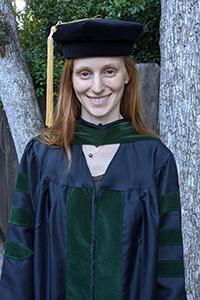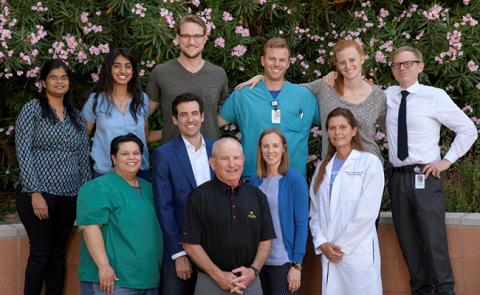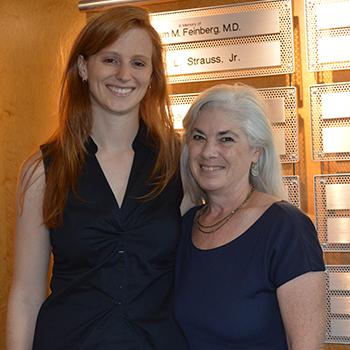
At the end of her third year of medical school, with sponsorship from Jil C. Tardiff, MD, PhD, Dr. Repetti was awarded the nationally prestigious Sarnoff Cardiovascular Research Fellowship to work in the lab of Drs. Christine and Jon Seidman in the Genetics Department at Harvard Medical School and Brigham and Women’s Hospital.
“I met Giuliana during her first week of medical school after I gave an introductory talk to outline research opportunities for medical students. From her strong background and her fluency in discussing her prior research experience, I knew she would be a stellar candidate for the Sarnoff Cardiovascular Fellowship, a program that has launched the academic careers of multiple generations of cardiovascular physician scientists,” said Dr. Tardiff, professor of medicine and cellular molecular medicine, College of Medicine – Tucson. Dr. Tardiff also is the Steven M. Gootter Endowed Chair for the Prevention of Sudden Cardiac Death at the Sarver Heart Center and a member of the BIO5 Institute.
Dr. Repetti, the first Sarnoff fellow from the University of Arizona, conducted two independent research projects while at Brigham and Women’s. One was a retrospective clinical study looking at the echocardiographic differences between monozygotic (identical) twins with hypertrophic cardiomyopathy (HCM), a condition that affects 1 in 500 people in the United States and is a leading cause of sudden cardiac death in young people. The study attempts to understand the relative contributions of genes and environment to the different clinical courses observed among patients with this disease. The results of this study on how genes and environment contribute to HCM are reflected in a first-authored manuscript currently under review.
Her main project from the Sarnoff Fellowship explored the mechanisms underlying thin filament HCM and the way genetic variants cause differences in how the heart muscle contracts and relaxes. By understanding the ways in which the diseased heart muscle’s contraction and relaxation are perturbed, there is hope for new treatments to intervene in this mechanism down the line. These research efforts in the Seidman Lab have resulted in a first-authored review publication in Circulation Research, as well as multiple submitted publications under review and presentations at national conferences.
“Dr. Repetti has an outstanding record as a medical student here at the University of Arizona where she excelled not only in the lab but in her clinical clerkships as well,” said Dr. Goldman, professor of medicine and the C. Leonard Pfeiffer Chair in Cardiovascular Medicine at Sarver Heart Center. “She was actively recruited to our internal medicine program here but chose instead to return to California, where she grew up, to be an internal medicine resident in the UCLA ProSTAR Physician-Scientist Training Program.”
“In navigating this challenging trajectory, she has exceeded all of my already high expectations and I look forward to following her promising career as a cardiovascular physician-scientist,” Dr. Tardiff said.
“We congratulate Dr. Repetti on her accomplishments here at the University of Arizona and hope we are able to attract her back to Tucson as a cardiology fellow or staff cardiologist at the Sarver Heart Center,” Dr. Goldman said.



